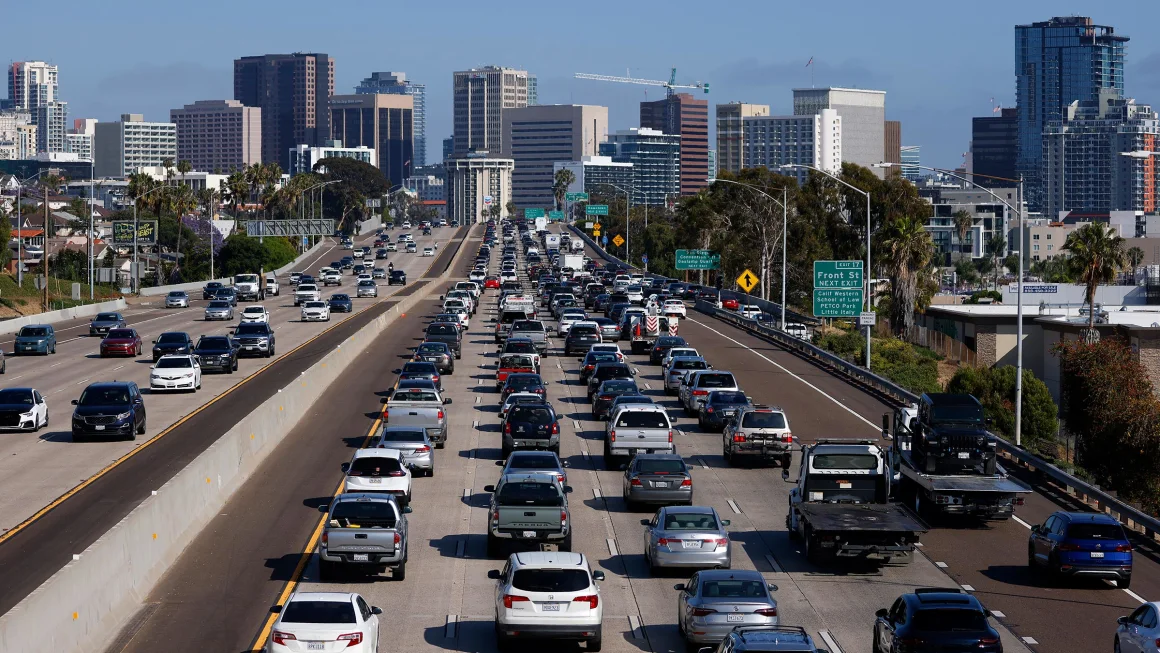Former President Donald Trump’s administration has launched a sweeping rollback of environmental protection rules, targeting more than a dozen pollution regulations in what has been described as rapid-fire deregulation. While these actions are touted as a means to reduce industrial burdens and boost economic growth, critics argue they severely undermine efforts to combat climate change and protect public health and the environment.
This article takes a closer look at these deregulations, the affected policies, and the broader implications for industries, public health, and environmental sustainability.
Major Rollbacks in Focus
The Trump administration’s recent moves include dismantling key climate policies concerning vehicles, power plants, and other pollution controls. These rollbacks signal sharp reversals from the climate-focused initiatives implemented under the Biden administration. Here are the standout regulatory changes targeted in the deregulation spree:
1. Vehicle Pollution Standards
The EPA under the Trump administration announced plans to overturn a Biden-era vehicle pollution rule finalized in 2024. This rule required automakers to reduce emissions and promote energy-efficient electric vehicles (EVs) and hybrids. The rollback shifts the focus away from EVs, which critics claim could hinder innovation within the automotive industry while increasing greenhouse gas output from vehicles.
2. Power Plant Regulations
Another major change involves dismantling rules requiring coal and natural gas power plants to reduce or capture 90% of their climate emissions by 2032. This rollback revives coal-fired energy production and loosens restrictions on pollution controls, which environmental groups fear could exacerbate climate change and harm air quality.
3. The “Good Neighbor Rule”
The administration also took aim at regulations controlling air pollution that drifts across state lines, known as the “Good Neighbor Rule.” Eliminating this rule could leave downwind states vulnerable to increased pollution from their neighbors, raising health concerns for millions of residents.
4. Soot, Mercury, and Coal Ash Pollution Rules
Several policies targeting industrial pollutants, including soot, mercury, and coal ash (a byproduct of coal-fired power plants), are now slated for removal. These pollutants are known health hazards that disproportionately affect marginalized communities already at risk.
5. Environmental Justice and Diversity Initiatives
Perhaps most controversially, the Trump-era EPA is eliminating programs designed to address environmental injustices and promote diversity. This move has drawn intense criticism for prioritizing industrial growth over vulnerable communities often subjected to higher rates of environmental pollution.
Implications for Key Industries
Auto Industry
While the EPA argues that deregulation will provide flexibility and protect consumer choice, automakers face greater uncertainty. Long-term planning in the automotive manufacturing industry relies on stable regulations. Constant policy shifts hinder progress toward global competitiveness and innovation in clean technologies like EVs.
Energy Sector
The electric utility industry heavily relies on consistent federal policies. Scrapping strict emission rules may initially reduce costs, but it creates uncertainty and risks lawsuits at the state level. Grid reliability and customer costs could suffer as utilities attempt to adapt to this new regulatory landscape.
Manufacturing and Trade
Trump’s defense of deregulation hinges on supporting U.S. industries, but without pollution controls, the global perception of American goods may suffer. Consumers increasingly prioritize environmentally conscious brands, and loosening environmental standards could hurt long-term competitiveness in international markets.
Reaction from Environmental Advocates
The rapid removal of these pollution rules has ignited backlash from environmentalists, climate scientists, and advocacy groups. Organizations like the Union of Concerned Scientists have condemned the measures, calling them a direct threat to public health. Senior policy director Rachel Cleetus stated, “These rollbacks will leave the nation sicker and our air, water, and soil dangerously contaminated.”
Similarly, Jason Rylander of the Center for Biological Diversity described the deregulation spree as one of “ignorance and malice” that prioritizes polluting industries over planetary health. He warned that these changes could exacerbate climate-driven disasters like wildfires, deadly heatwaves, and extreme floods.
While opposition groups have vowed to challenge the administration’s moves in court, reversing these actions could take years, adding further uncertainty.
Defending Deregulation
Defenders of the rollbacks argue that prior administrations’ regulations imposed excessive costs and unevenly burdened U.S. industries. EPA Administrator Lee Zeldin stated that repealing restrictive policies will ensure “consumer choice” and align rulemaking with economic growth while adhering to the “rule of law.”
Energy Secretary Chris Wright echoed this sentiment, dismissing climate-focused policies as “irrational” and framing climate change as a consequence of modern industrial society.
Long-Term Risks
Though deregulation may bring short-term flexibility for certain industries, the downsides are substantial and far-reaching. Key risks include:
- Public Health Impacts: Increased exposure to pollutants like soot and mercury can exacerbate respiratory illnesses and heart conditions, affecting millions.
- Climate Acceleration: Scaling back emissions standards could accelerate climate change at a time when science underscores the need for urgent action.
- Regulatory Instability: Rapid policy changes create instability, making it harder for industries to plan ahead and adopt sustainable practices.
- Global Leadership: Weakening environmental policies could harm America’s global standing, particularly as other nations double down on green technologies.
Looking Ahead
The Trump administration’s deregulatory actions reflect a profound shift in U.S. environmental policy, dismantling years of progress toward a cleaner, healthier world. For environmental activists, policy analysts, and concerned citizens alike, the stakes couldn’t be higher.
The future of these rollbacks will rely heavily on legal challenges, public sentiment, and the global movement for climate action. One thing is certain, however—in the face of mounting evidence supporting sustainable practices, America’s approach to pollution regulation remains a deeply divisive issue with long-term consequences.
For those seeking to protect the environment, these latest developments highlight the importance of advocacy and participation in shaping policies that impact our planet’s future.








